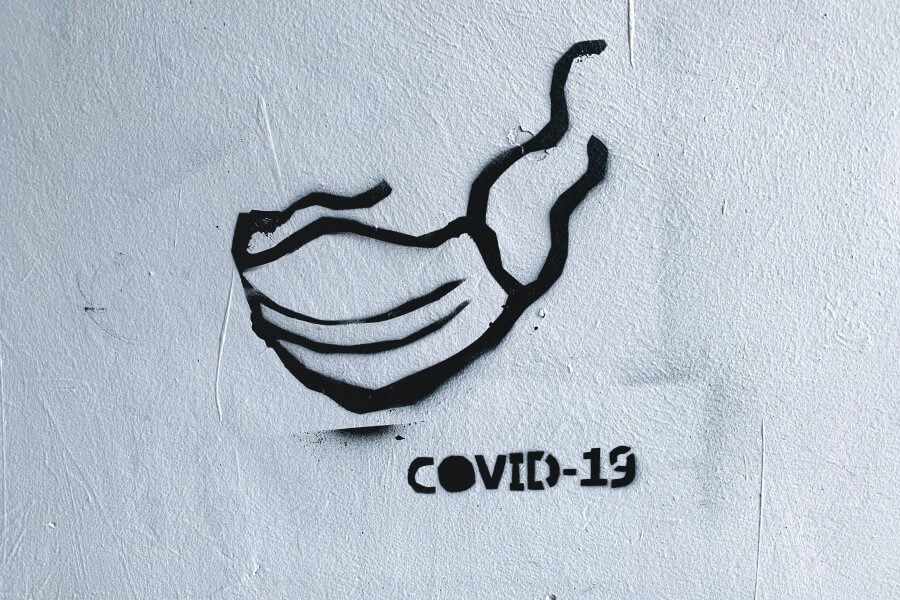 Dr Justin Varney discusses how community engagement, partnership working and communication allowed Birmingham to tackle the challenges thrown up by Covid-19.
Dr Justin Varney discusses how community engagement, partnership working and communication allowed Birmingham to tackle the challenges thrown up by Covid-19.
This blog post was produced for inclusion in the Birmingham Economic Review for 2021.
The annual Birmingham Economic Review is produced by City-REDI, University of Birmingham and the Greater Birmingham Chambers of Commerce. It is an in-depth exploration of the economy of England’s second city and a high-quality resource for informing research, policy and investment decisions.
This post is featured in Chapter 1 of the Birmingham Economic Review for 2021, on Birmingham’s economic recovery and resilience following the coronavirus crisis.
Click here to read the Review.
The last 18 months have been perhaps some of the most turbulent and challenging for Birmingham, and the wider region, since the devastation of the 2nd World War. The region has been hit hard throughout the pandemic in an array of areas, but the new year also brought hope. Throughout 2020, the rollout of a vaccine seemed a long way away but as the year turned there were multiple vaccines that were both safe and effective at protecting against death and severe disease, especially numerous vaccines that work as efficiently as they do.
Communication and Engagement
We often say that communication and engagement are key and, although it is often part of emergency plans and outbreak response plans, it is rarely something that is thought through until the time comes and the emergency is upon us. It is a gap that all of us have had to fill at pace during the last year.
In the rapidly changing world of the Covid pandemic, the science of a new disease evolved almost daily alongside the learning and politics of the interventions and treatments that worked to fight against it. National government departments battled valiantly to keep pace, but material was rarely in easy read or translated versions and lack the nuance needed to make it real for communities in their day to day lives.
Direct Community Engagement in Birmingham
The approach we took in Birmingham was heavily rooted in direct engagement using trusted, authentic and knowledgeable technical experts. As each wave moved through the City our approach evolved, in the first wave we relied heavily on existing partnerships and those that were fledgling in the early days such as the weekly Masjid meeting became a bedrock of communication and engagement. The conversations in these early days were essential to the City’s response as we navigated the response, ranging from the gaps in guidelines for taxi drivers to the important considerations for funeral and burial advice for different faiths. The partnership of these early days bore fruit as the vaccination programme started and the Al-Abbas Islamic Centre in Balsall Heath was the first mosque in the UK to offer the COVID-19 vaccine, followed by many other faith centres that have opened their doors to offer vaccination sites.

In the Summer of 2020, we built on this to commission a cohort of community engagement partners to build relationships and trust with targeted communities within Birmingham such as our LGBT community, our deaf community and our African and Caribbean communities. Later in the summer, we built on learning from Newham we launched the Covid Community Champions to strengthen further this direct connection with citizens lives and experience. As we come towards Summer 2021 this network now has over 800 community champions, 35 Covid youth champions, a new cohort of business Covid champions and 19 community engagement providers working with over 31 different communities of identity and interest. At one level the value of these networks has been information dissemination through trusted social and professional networks which cascade through WhatsApp groups, Facebook messages and telephone calls. But the deeper value has been in the two way nature of the conversations, bringing together the senior staff, including myself, with citizens and their experiences and co-producing solutions.
Engagement through the media and social media
Alongside this engagement we have utilised media and social media in multiple different formats, ranging from Twitter to Tik Tok. I had a crash course on live Instagram Q&A sessions to engage with young people, trying to read and respond to a vertical stream of questions, hearts and thumbs-up emojis! Where we explored new platforms like Tik Tok we did this with partners like BeatFreaks who know them better than the Council and could land campaigns effectively in a style and approach that resonated and achieved reach.

Our local and regional media have also supported us throughout and the commitment to a weekly Tuesday morning live Q&A on BBC West Midlands was supplemented by regular Facebook live sessions with Birmingham Live and ethnic and language channels like Sikh TV. These sessions helped reach different audiences and the multi-lingual channels really helped us reach, and hear from, different communities of language across the City.
A city-wide response to the pandemic
Responding to the pandemic has been a city-wide partnership, although we had some engagement before Covid, it is through the adversity that this partnership has blossomed and grown. Coming into 2020 the city was predicted that the city would lose over 9,000 lives through the year, and although the burden has been high with over 3,000 deaths it is down to the strength of the engagement and partnership that this number was not higher.
As we move forward, it is important to not think COVID-19 has gone away, nor that it will not continue to impact our lives over the coming decades. The pandemic has shone a cruel and harsh light on the many inequalities across the City, from poverty to obesity, and exacerbating many of them. Responding to these will rely on this engagement and communication being maintained and invested in, as we cannot close the gap without communities and citizens working in partnership with the public and private sector to co-create solutions and break the cycles that have undermined lives for far too long.
This blog was written by Dr Justin Varney, Director of Public Health, Birmingham City Council.
Disclaimer:
The views expressed in this analysis post are those of the authors and not necessarily those of City-REDI / WMREDI or the University of Birmingham.
